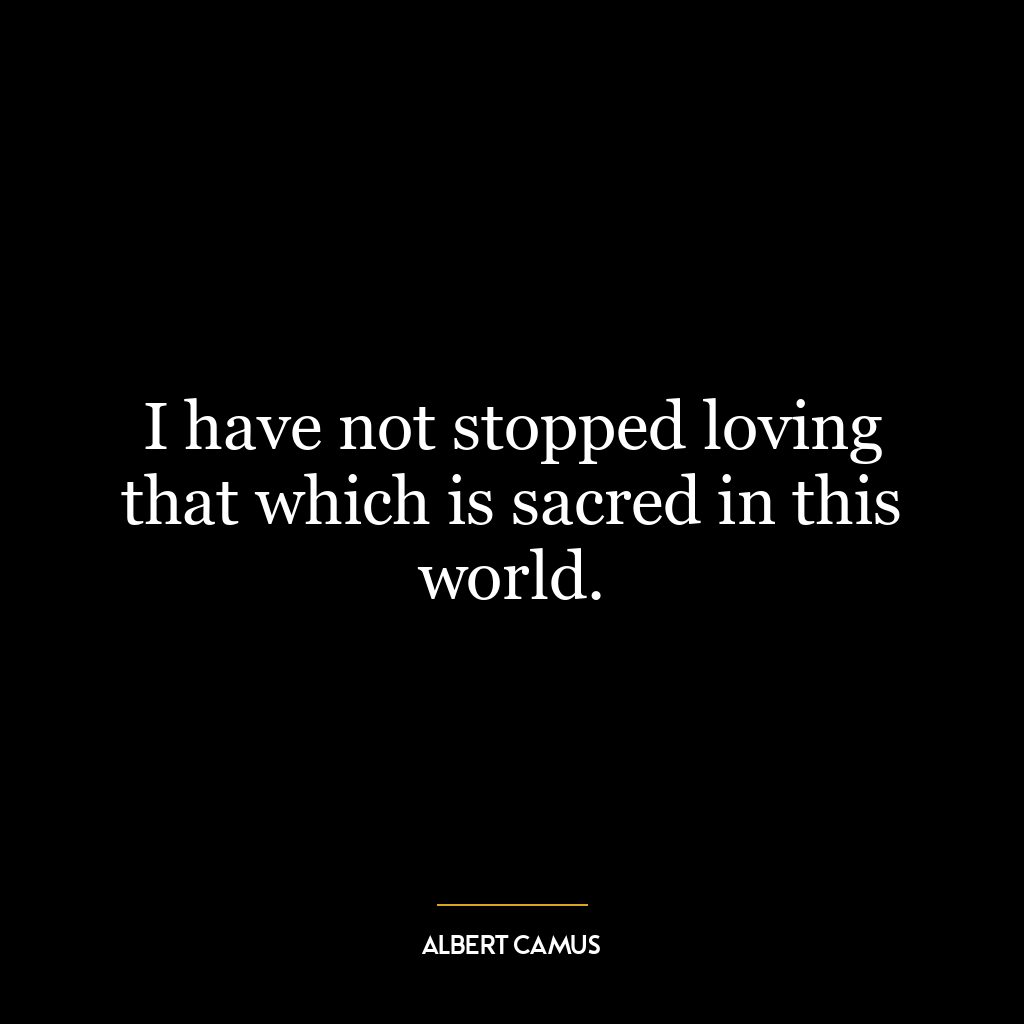I have not stopped loving that which is sacred in this world.
This quote suggests a continuous and unwavering reverence for the sacred or divine elements present in the world. The term ‘sacred’ is subjective and can encompass a wide range of things – from religious beliefs and spirituality to the sanctity of life, nature, love, and even art. The essence of the quote lies in its emphasis on the act of ‘not stopping’ – indicating a persistent love, respect, and appreciation for these sacred aspects, despite the challenges or changes one might face.
In the context of personal development, this idea could be interpreted as maintaining one’s core values and principles. Even when confronted with obstacles or temptations, one should not cease to love and uphold what they consider sacred. This might include honesty, integrity, compassion, or any other value that an individual holds dear.
In today’s world, this idea could be applied to various societal issues. For example, in the face of environmental degradation, it suggests the importance of not stopping to love and respect the sanctity of nature. Despite the rapid advancements in technology and the pursuit of economic growth, the quote underscores the need to preserve and cherish the natural world.
Moreover, in the context of social justice, it could refer to the respect for human rights and dignity. Despite the prevalence of inequality and discrimination, one must not stop loving the sacred value of equality and human dignity.
Lastly, in an era where materialism and consumerism are rampant, the quote is a reminder to value the sacredness of human relationships and genuine connections over material possessions.
In essence, the quote is an enduring call to stay true to one’s values, to honor the sacred, and to maintain a sense of reverence and love for the world and its divine elements, no matter the circumstances.















